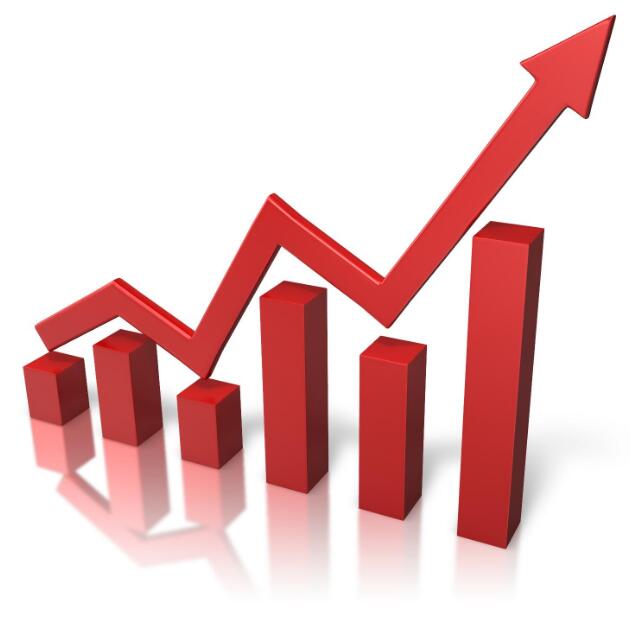Pfizer vaccine is fully approved, can these industries finally buy with confidence?

On Monday, the U.S. Food and Drug Administration (FDA) fully approved the use of the new crown vaccine jointly developed by Pfizer and BioNTech of Germany, which will be marketed under the name "Comirnaty".
In other words, Pfizer’s vaccine has become the first new coronavirus vaccine on the market officially approved for use in the United States. It can be vaccinated by people over 16 years old. At the same time, the emergency use range is applicable to people between 12 and 15 years old. People with weakened immune system receive the third dose.
Earlier, 51.5% of Americans had been vaccinated. This full approval is expected to reduce the resistance of the remaining 48.5% of the population to the vaccine. Pfizer CEO Albert Bourla said, “I hope this approval will help increase people’s confidence in vaccines, because vaccines are still our best tool to help protect lives and achieve herd immunity.” Earlier, Pfizer had reported to the FDA A comprehensive data package was submitted, which included long-term follow-up data from the Phase III trial. The data showed that “in the Phase 3 trial, the vaccine continued to have high efficacy and good results for 6 months after the second injection. Security."
This news is good news for some sectors in the U.S. stock market. The further promotion of vaccines will make travel safer and encourage more people to get vaccinated. The travel sector, including individual stocks in cruises, airlines, hotels and other industries, all rose.
According to market data, as of Monday’s close, Norwegian Cruise Line (NYSE:NCLH) rose 4.27%, Carnival Cruise Line (NYSE:CCL) rose 3.96%, Spirit Airlines Inc (NYSE:SAVE) rose 4.10%, JetBlue Airways (NASDAQ:JBLU) ), American Airlines (NASDAQ: AAL), and United Airlines (NASDAQ: UAL) have all increased by more than 3%. In addition, Marriott International (NASDAQ: MAR), InterContinental Hotels Group (NYSE: IHG), Airbnb ( NASDAQ:ABNB) and other stocks also rose.
However, with the rising US stocks and the cheering travel sector, is now a good time to buy?
The pessimist sees signs of weakening demand
In the just-concluded second-quarter earnings season, the performance of the four major U.S. airlines was boosted by the tourism industry’s rebound. However, with the invasion of Delta virus, Southwest Airlines (NYSE:LUV) announced data this month. Became the first airline to report weakening demand. The company stated that its sales and profit prospects have become bleak, and warned that the recent “surge in new crown cases related to the delta mutant strain” has caused the airline’s demand to begin to weaken this month, and this impact may It will make the company "difficult to achieve profitability in the third quarter."
At the same time, another airline, Frontier Group Holdings Inc (NASDAQ: ULCC) also stated that the demand for air travel has recently declined, which is closely related to the increase in cases of infection with the delta mutant strain. The low-cost airline said in the second-quarter performance call, “We noticed that in the past week, the scheduled level was significantly lower than the seasonal standard. We believe this is directly related to the epidemic.”
Another warning comes from Citi’s research. The bank believes that as the U.S. economic recovery recedes, the week of August 2 to August 8, global flights fell by 33% compared to the same period in 2019, compared to the previous week’s decline. It's 16%.
Peter Kern, CEO of Expedia, an online travel booking service provider (NASDAQ:EXPE), also from the travel industry, told analysts earlier that July was affected by the Delta strain. There has been a certain regressive trend. TripAdvisor (NASDAQ:TRIP) also stated in its second-quarter shareholder letter, “Although the situation has eased, compared with 2019, cancellations of orders are still relatively high.”
In terms of hotels, revenue per night in the United States fell 3.6% from the same period in 2019, after the previous week's data had been flat. Among them, compared with two years ago, the number of available rooms per room in high-end hotels dropped the most, with luxury hotels down by 8.8% and high-end hotels down by 23.5%. However, the revenue per night of budget hotels increased by 12.7% compared to the same period in 2019.
Optimists see the prospect of a strong recovery
However, although Delta Air Lines (NYSE:DAL) stated as early as July that the company "has noticed the risks of the Delta epidemic to economic recovery", the company will maintain a high degree of self-discipline in "resuming international routes". . However, the airline does not expect weak demand in the next two to three months.
There are not a few market participants who hold the same views as Delta Air Lines. Raymond James analyst Bill Crow believes that so far, Delta has not had much impact on travel. Patrick Scholes of Truist Securities also believes that "there are indeed some disturbing signs", but it is still difficult to assert the specific impact of the delta mutant strain. "When concerts and trade shows across the United States begin to be cancelled, demand Will be greatly affected."
Analysts from MKM Partners pointed out earlier this month that when the panic around the delta strain reached the “highest level”, then the aviation industry has entered a good entry point, and it is currently difficult to determine market sentiment. But the market is approaching the panic limit, and there will be a better chance to enter the aviation field in the next few weeks.
When the time came to the end of August, the average number of confirmed cases in the United States on the 7th had soared by nearly 15,000, and the average death toll on the 7th had reached 1,000. This may be the "peak US infection cases" previously pointed out by Steve Chiavarone, the portfolio manager of Federated Hermes. "He believes that this will be a good opportunity to buy "economic restart concept stocks" for the second time.



